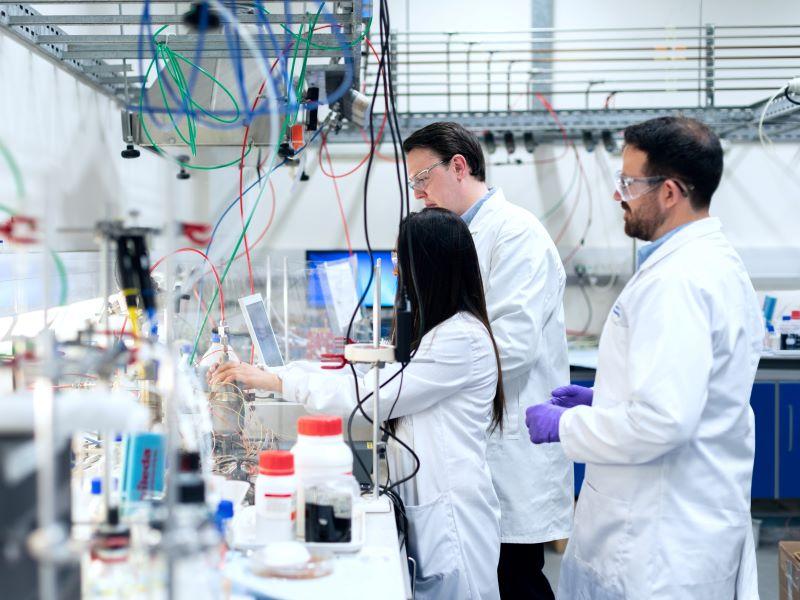
Quality is the best policy in research
You may also like
The quest for high-quality, reproducible outcomes has become increasingly crucial as research impacts various industries, including healthcare. Growing interdisciplinary collaboration and larger team participation present significant challenges to maintaining consistent quality control standards.
Quality control is not solely about validating results. It involves several actions, such as designing, monitoring and validating research procedures to guarantee that research is executed with rigour and integrity and that each step leading to the results adheres to established standards. Here are a few strategies for ensuring research quality and integrity.
Establish clear research protocols
The success of any research endeavour depends on well-defined research protocols. These should outline each phase of the research process, from design to reporting structures. They should also ensure that all researchers involved in the project follow the same guidelines. For instance, a protocol may establish the precise dosage in a clinical trial, the duration of the study and the parameters for evaluating efficacy and adverse effects in pharmaceutical or medical research. Biased results may result from any deviation from these protocols, rendering the research unreliable. Therefore, the first step is to ensure that they are clear and accessible.
Education and training
Even with well-designed research protocols, the quality of the research is compromised if team members do not have the necessary training or understanding of them. Investing in continuous training programmes that ensure researchers are informed about the latest technologies, good practices and ethical considerations is essential. Training should be an essential component of a researcher's growth rather than a singular event. Regular conferences and seminars on laboratory techniques, ethical research conduct and statistical analysis are essential for ensuring that all participants in a research project possess the necessary skills to contribute meaningfully. For instance, a laboratory that conducts clinical trials may offer specialised training on good clinical practice to ensure that all researchers understand and adhere to the proper methods for safeguarding patient confidentiality, managing trial data and reporting adverse events.
Data handling and validation
One of the most significant challenges to research quality control is the effective handling and validation of data. It is imperative to establish robust data administration systems that ensure accuracy, integrity and security. Institutions should implement data management strategies that specify how data should be collected, stored and analysed.
In addition, ensure that the validity of research findings is confirmed through statistical methods and that datasets are examined regularly for errors or inconsistencies. For example, in clinical research, validation techniques such as replicating results through various statistical models or cross-verification with independent datasets can help ensure findings are robust.
- Resource collection: Research excellence: what is it and how can universities achieve it?
- No one agrees on what research leadership is, let alone how to do it well
- Understanding ethics approval in academic research
Peer review
Internal peer review procedures can help detect problems early, allowing necessary corrections before they affect the study results. Regular review of research processes enhances the quality control procedure. Internal quality assurance teams or external organisations can conduct audits to confirm adherence to ethical standards, research protocols and data management procedures.
Technology
Technology plays an important role in enhancing the quality of research. It can significantly reduce human error and ensure reliable and consistent outcomes. In clinical trials, electronic data capture systems minimise errors in data entry and enable monitoring of real-time trial data. Additionally, artificial intelligence and machine learning algorithms are increasingly used to identify trends, analyse complex datasets and validate results, providing new ways to ensure quality control.
Ethical oversight
Upholding ethical norms in research is essential for ensuring high-calibre results. Ethical review boards must be in place to evaluate research proposals and guarantee that researchers follow moral standards. Researchers should also receive training to recognise and handle ethical concerns relating to consent, data privacy and conflicts of interest. For instance, in pharmaceutical research, carrying out clinical trials to strict ethical guidelines protects patient rights and generates legitimate, accurate data.
Nurturing integrity and transparency
Institutions and research teams should foster a collaborative, transparent and honest environment where researchers feel comfortable discussing issues in their work, including protocol deviations, data integrity or conflicts of interest. Transparency also makes research accessible to the broader scientific community for examination. Open access to raw data and clear reporting of methods can help prevent the “file drawer problem” (whereby only positive results are published) and ensure that research findings are reproducible.
To guarantee the reliability and validity of research findings, institutions should implement practical and mandatory quality control measures, including standardising procedures, integrating technology, providing regular training and maintaining comprehensive documentation. Quality control is not merely a regulatory necessity; it represents a commitment to the highest standards of research practices. Ultimately, it confirms that the conclusions drawn from research are based on sound evidence, benefiting researchers and society.
Srinivas Mutalik is a principal and professor at Manipal College of Pharmaceutical Sciences, Manipal Academy of Higher Education, India.
If you would like advice and insight from academics and university staff delivered direct to your inbox each week, sign up for the Campus newsletter.




